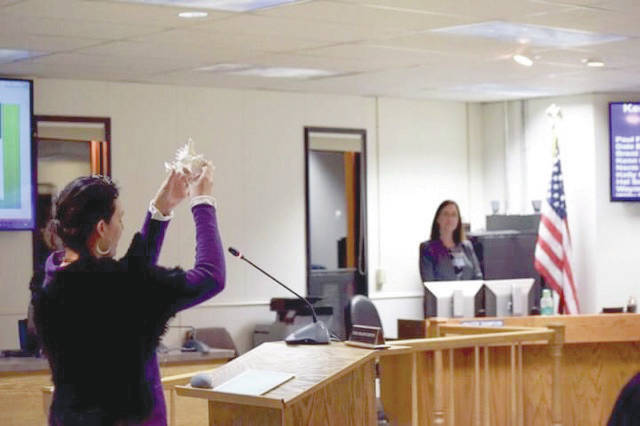Applications to offer invocations during Kenai Peninsula Borough Assembly meetings are now open on the borough’s website.
Any Kenai Peninsula Borough resident can sign up to provide an invocation, which is described on the borough’s website as a short prayer or a solemnizing message offered at the beginning of each assembly meeting for the benefit of the assembly, accommodating for the spiritual needs of the public officials.
Any person wishing to provide an invocation must submit a dated, written request to the clerk’s office. Residents approved to provide invocations will be scheduled on a first-come, first-served basis.
Each resident may only ask to provide one invocation at a time, and no one will be schedule to offer an invocation at consecutive assembly meetings, or at more than four assembly meetings in any calendar year.
The assembly requests by the language of its policy that no invocation should proselytize or advance any faith, or disparage the religious faith or non-religious views of others, the borough’s website said.
For the remainder of 2019, four more assembly meetings are scheduled. Angela Roland will be providing an invocation Oct. 8. George R. Holly Jr. will provide an invocation Oct. 22. Assembly member Willy Dunne will provide an invocation at the Nov. 5 borough assembly meeting. On Dec. 3, Tom Anthony will provide the assembly meeting invocation.
The borough’s invocation policy has sparked yearslong controversy.
Last October, the borough lost a lawsuit against plaintiffs represented by the American Civil Liberties Union of Alaska in a fight over its invocation policy, which allowed certain groups and individuals to offer an invocation at the beginning of each meeting. The plaintiffs, Lance Hunt, an atheist, Iris Fontana, a member of the Satanic Temple, and Elise Boyer, a member of the Jewish community in Homer, all applied to give invocations after the policy was established in 2016. All three were denied because they didn’t belong to official organizations with an established presence on the peninsula. They sued and the ACLU Alaska agreed to represent them.
Anchorage Superior Court Judge Andrew Peterson ruled the invocation policy violated the Alaska Constitution’s establishment clause, which is a mandate banning government from establishing an official religion or the favoring of one belief over another. Article 1, Section 4 of the constitution provides that “no law shall be made respecting an establishment of religion.”
Last November, the assembly voted against appealing the Superior Court decision and passed an updated invocation policy allowing more people the ability to give invocations at assembly meetings.

